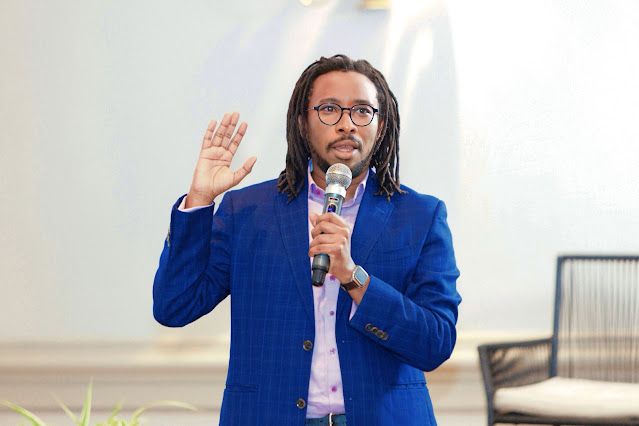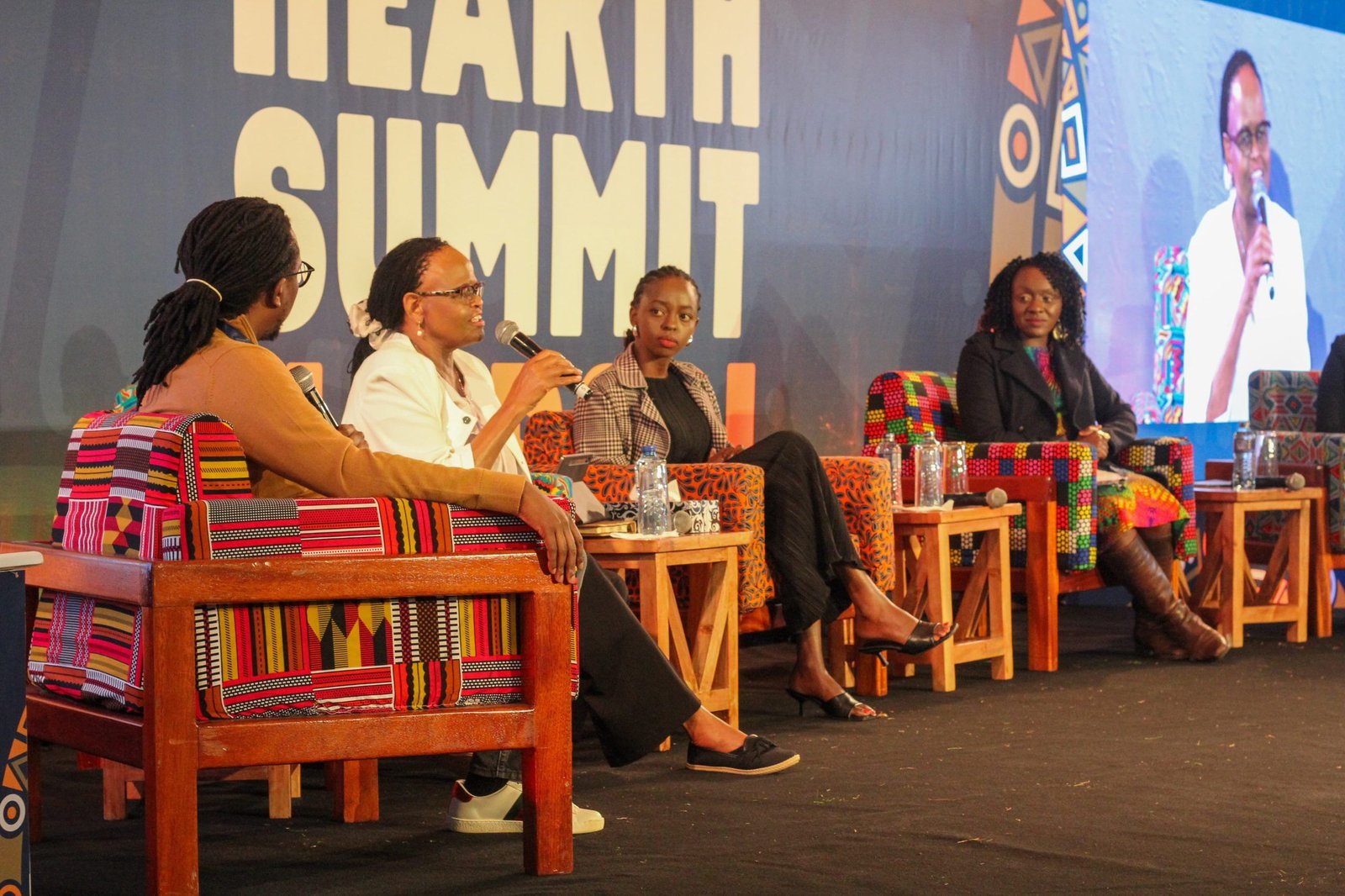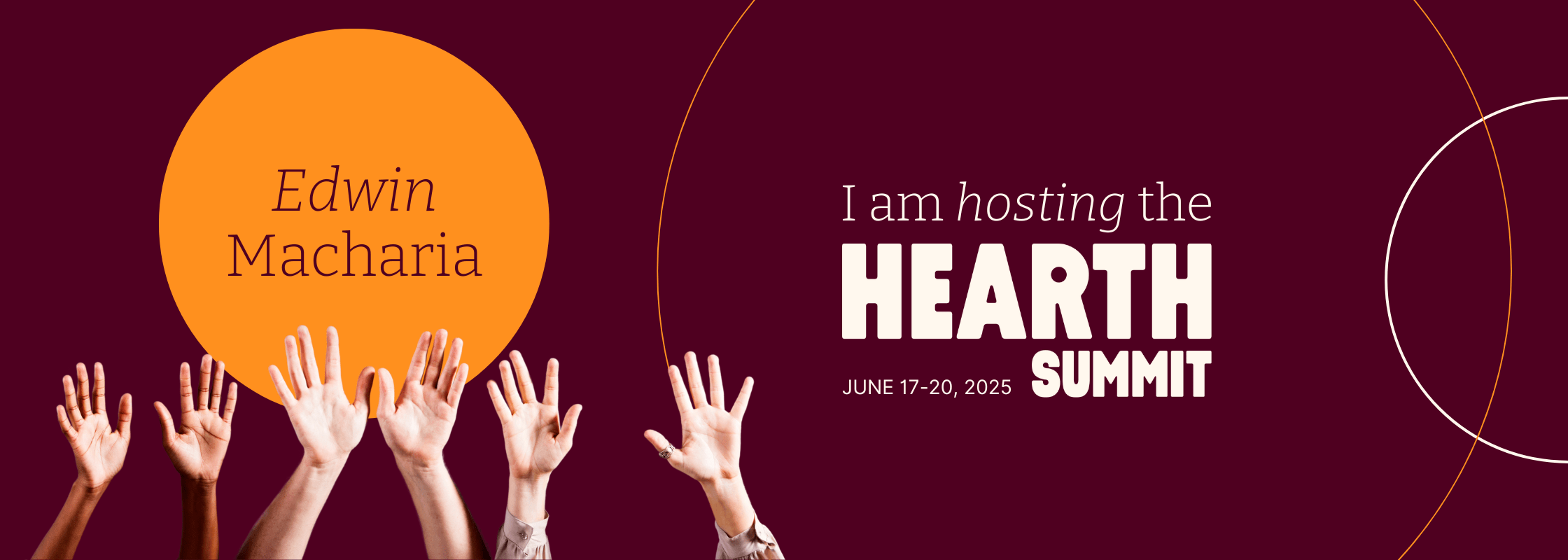De esta manera Bilbao se convertirá durante tres días en la capital mundial del bienestar con un completo programa que se extenderá a lo largo de toda la ciudad en espacios emblemáticos como Azkuna Zentroa. Centro de Sociedad y Cultura Contemporánea de Bilbao, el Museo Guggenheim Bilbao Museo, el Museo de Bellas Artes de Bilbao, la biblioteca de la Universidad de Deusto, el parque Doña Casilda, el Bizkaia Aretoa UPV-EHU o el Palacio San Nicolás (Colección BBVA).
Será el mismo día 1 de junio cuando el alcalde de la ciudad, Juan Mari Aburto, dé la bienvenida oficial a la Cumbre del Bienestar plantando un árbol como parte de la instalación Mandala Lab del Museo de Arte Rubin en el Parque Doña Casilda. “Bilbao tiene el placer de acoger esta primera edición de la Cumbre del Bienestar para el Cambio Social que, estoy seguro, ayudará a marcar la hoja de ruta de esta nueva revolución en ciernes”, sostiene el alcalde.
The Wellbeing Summit eligió la capital vasca por su papel como centro internacional para el arte y la cultura, así como por la transformación que la urbe está desarrollando en torno a la Carta de Valores de Bilbao aprobada en 2018 tras un proceso de participación ciudadana. Con ella se pone el foco en los Objetivos de Desarrollo Sostenible y, muy especialmente, en la mejora del bienestar de la ciudadanía.
“A lo largo de los años, la ciudad ha apostado por un modelo de desarrollo urbano y humano que garantice la posibilidad de realizar proyectos de vida plena y digna para todas las personas que viven y trabajan aquí. Nuestro compromiso con el bienestar humano se ha convertido en un modelo internacional que nos ayudará a generar esperanza para el futuro”, afirma Aburto.
La Diputación Foral de Bizkaia y el Ayuntamiento de Bilbao colaboran con The Wellbeing Project en la organización y desarrollo de este encuentro. En este sentido, la Diputación Foral de Bizkaia considera The Wellbeing Summit como “un elemento de posicionamiento para Bizkaia en el ámbito internacional como territorio de oportunidades para la atracción de inversiones, talento, visitantes y eventos, fomentando la participación en redes internacionales de referencia y establecimiento de acuerdos de colaboración exterior”.
Para Sandrine Woitrin y Aaron Pereira, codirectores de The Wellbeing Project, el programa de conferencias y las propuestas artísticas de The Wellbeing Summit “permitirán a los participantes de la cumbre y a los residentes de Bilbao experimentar el impacto positivo de impulsar el bienestar en todos los aspectos de la sociedad para obtener mejores resultados”.
Programa artístico
Tanto la población local como los asistentes a la cumbre tendrán acceso a una amplia variedad de exposiciones, obras de arte comisionadas a artistas de relevancia internacional y piezas de artes escénicas encargadas con motivo de este encuentro. Para The Wellbeing Summit “las artes tienen un poder único para expresar ideas y emociones de nuevas maneras, experiencias que tienen un profundo impacto en nuestras vidas y para ayudarnos a dar sentido al mundo que nos rodea”.
En este sentido, el programa artístico, comisariado por Manuel Bagorro con la asesoría de Vicente Todolí, incluye doce obras comisariadas específicamente a artistas contemporáneos de relevancia internacional como Grimanesa Amorós, Miroslaw Balka, Janet Cardiff & George Bures Miller, Nikhil Chopra, June Crespo, Alicia Framis o Carlos Garaicoa. Todos ellos han creado una serie de trabajos que se despliegan por la ciudad para explorar el bienestar interior desde diferentes perspectivas personales.
Las artes escénicas tienen asimismo un importante papel en una programación que incluye conciertos, espectáculos, talleres y laboratorios creativos. Artistas de todo el mundo —como Birdheart, Brooklyn Rider, Nikhil Chopra, Joshua Roman o Zirkozaurre— han colaborado para presentar un programa multidisciplinar que busca involucrar a personas de todas las edades para que exploren el poder transformador de las artes para impulsar un cambio sistémico positivo.
Entre los espectáculos que integran el programa destaca Remember This: The Lesson of Jan Karski, una pieza teatral escrita por Clark Young y Derek Goldan que se presentará en el auditorio de Azkuna Zentroa. Centro de Sociedad y Cultura Contemporánea de Bilbao, el martes 31 de mayo. El reconocido actor estadounidense David Strathairn (L. A. Confidential, Lincoln o Buenas noches y buena suerte) interpreta a Jan Karski convirtiendo esta propuesta en una experiencia tanto emocional como moral. El 31 de mayo, la artista y escritora Himali Singh Soin presenta en la misma sede “Ancestors of the blue moon”, una experiencia multisensorial performativa.
El artista contemporáneo indio Nikhil Chopra participa en la cumbre con una performance de 24 horas de duración en la galería Aldama Fabre, los días 2 y 3 de junio, en la que llevará a cabo la creación de un dibujo monumental que incorporará a la ciudadanía de Bilbao y a los asistentes a la cumbre en torno a una celebración de la comunidad y el arte.
En total, serán más de 85 artistas los que expongan en 10 sedes. La artista catalana Alicia Framis exhibirá Taking Fight en Bizkaia Aretoa UPV-EHU, del 31 de mayo al 3 de junio y el artista cubano Carlos Garaicoa presentará Soñamos en la superficie rayada de un cristal en la calle Ercilla,35 (frente al Hotel Ercilla), del 31 de mayo al 3 de junio.
Por su parte la artista vasca June Crespo, que recientemente ha participado en la 59ª Bienal de Venecia, presenta su serie de esculturas de hormigón Core22, del 20 de mayo al 15 de junio, en el exterior del Museo de Bellas Artes de Bilbao. Unas piezas con las que poder interactuar y bailar, que nos recuerdan la interacción entre lo absoluto y lo efímero y lo esquivo. Durante el evento el Museo de Bellas Artes de Bilbao acogerá también una película de Maddi Barber que documenta el camino de la materia prima hacia su transformación en cemento y piezas de arte, así como las interacciones de los performers con las obras de la artista.
Grimanesa Amorós, conocida por sus obras escultóricas a gran escala, presentará en el Atrio de Azkuna Zentroa. Centro de Sociedad y Cultura Contemporánea de Bilbao la instalación SCIENTIA partiendo de la importancia de la luz para mejorar el estado de ánimo y la salud mental de las personas. Se podrá visitar hasta el 31 de agosto.
El filme narrativo Fog Dog, se proyectará en el Auditorio del Museo Guggenheim Bilbao del 1 al 3 de junio. Una película en la que Daniel Steegman Mangrané explora los espectros del pasado y del futuro que rondan el Bangladesh actual desde la perspectiva de los perros callejeros que conviven en esos espacios. Asimismo, el artista holandés Daan Roosegaarde presentará en el parque de Doña Casilda la performance poética SPARK, con una lluvia de fuegos artificiales biodegradables como una alternativa sostenible para celebrar juntos.
Además, desde el 31 de marzo hasta el 5 de junio, el Palacio de San Nicolás en el Casco Viejo —sede de BBVA en Bilbao— acogerá la muestra “Arte y espiritualidad. Imaginar lo extraordinario”.
Ciclo de conferencias
El programa The Wellbeing Summit tendrá como epicentro al Palacio Euskalduna, donde se desarrollarán charlas, conversaciones y paneles de discusión orientados a subrayar las conexiones entre el bienestar individual, organizacional y social. Una selección de ponentes de reconocimiento internacional abordará temas como la neurociencia, la pertenencia ambiental, el trauma intergeneracional o cómo fomentar culturas más saludables. Las sesiones podrán seguirse vía streaming de forma gratuita a través de este enlace.
Además, en distintas sedes a lo largo de la ciudad habrá sesiones de trabajo y talleres que brindarán herramientas para llevar a cabo acciones con impactos significativos. En este mismo sentido, los laboratorios creativos unirán a artistas y ponentes para profundizar en temas más amplios.
El ciclo de conferencias comenzará el martes 31 con una conversación sobre nuestra relación con el planeta a cargo de Laureline Simon (fundadora y directora de One Resilient Earth), Mallika Dutt (activista y fundadora de Inter-Connected, activista), Carlone Schemee (socia en Manejo Ambiental y cofundadora de organizaciones de bienestar y cambio social) y la artista Clare Celeste.
A partir del 1 de junio se sucederán, durante tres días, ponencias que abordarán diversos temas y que arrancará en el auditorio del Palacio Euskalduna con Juan Mari Aburto (alcalde de Bilbao) Satish Kumar (ambientalista), Lorea Bilbao Ibarra (Consejera de Euskera, Cultura y Deporte de Vizcaya) o Aaron Pereira y Sandrine Woitrin (codirectores de The Wellbeing Project). En el transcurso de los días se abordarán temas como el bienestar en el trabajo, género y bienestar, la salud mental en el hemisferio sur, las perspectivas de la neurociencia, el bienestar en la educación superior, el poder de la música en el bienestar o la activación comunitaria a través de la danza.
The Wellbeing Project
The Wellbeing Project tiene como objetivo crear e impulsar un movimiento de cambio en la cultura del sector de la innovación social hacia una cultura con mayor bienestar para los actores que la componen. Trabaja en cocreación con más de 20 organizaciones como Ashoka, Skoll Foundation, Porticus, Impact Hub, the World Economic Forum, Georgetown University, Stanford University o the Greater Good Sciences Center de Berkley. También cuenta con una red de más de 200 organizaciones globales, regionales y locales como Rockefeller Foundation, Ford Foundation, Danone, Aspen Institute, Mondragon Team Academy o Tec de Monterrey que apoyan activamente y son actores de este movimiento de cambio.
Colaboradores: BBVA; Bizkaia – Government of Biscay; BMW; City of Bilbao; Latham & Watkins; Azkuna Zentroa; Canadian Embassy of Madrid; Community Arts Network; Draiflessen Collection; Fundación Universidad-Empresa; Greater Good Science Center; Guggenheim Bilbao; India Development Review; JCDecaux; MIT Media Labs; Museo De Bellas Artes de Bilbao; Panta Rhea Foundation; Reino de los Países Bajos; Robert Wood Johnson Foundation; Schoepflin Foundation; Science Gallery; Steelcase; Stanford Social Innovation Review; Thyssen Bornemisza Art Contemporary; The Robert H. N. Ho Family Foundation Global; The Rubin Museum of Art; Science Gallery; and Ursula Hauser Collection.
Ponentes: Rajni Bakshi, Briggs Bomba, Mbarka Bouaida, Kate Byrne, Laura Calderon de la Barca, Aneel Chima, Chantharavady Choulamany, Gary Cohen, Andrea Coleman, Dr. Richard J. Davidson, Suparna Diwakar, Peggy Dulany, Mallika Dutt, Gabriela Gandel, Russ Gaskin, Rosemary Gathara, David Germano, Sennay Ghebreab, PhD, Jay Coen Gilbert, Dr. Eddie S. Glaude Jr., Ramsés Gómez, Edgard Gouveia Jr, Vanessa Haigh, Zarlasht Halaimzai, Reggie Hubbard, Lorea Bilbao Ibarra, Luzette Jaimes, Shruti Jayaraman, John Kania, Nadine Kaslow, PhD, ABPP, Dr. Barry Kerzin, Dr. Julia Kim, Dr. Sará King, Satish Kumar, Edwin Macharia, Juan Mari Aburto, Aikatarini Makrogamuraki, Katherine Milligan, Wanja Muguongo, Rukudzo Mwamuka, Kumi Naidoo, Haifa Najjar, Dr. Deepa Narayan, Wellington Nogueira, Clara Oyuela, Cristiane Ferraz Prade, Father Timothy Radcliffe, Monira Rahman, Imam Sayed Ali Abbas Razawi, Rabbi David Rosen, Sharon Rosen, Zainab Salbi, Carolin Schmee, Jessamyn Shams-Lau, Laureline Simon, Vanee Surendranathan, Chris Underhill, Najat Vallaud-Belkacem, Justin Michael Williams, Louisa Zondo.
Artistas y proyectos artísticos: Grimanesa Amoros, Yazmany Arboleda, Loreto Aramendi, Miroslaw Balka, BBVA Art Collection, Birdheart, Dineo Seshee Bopape, Berlinde De Bruyckere, Kenyatta Emmanuel, Brooklyn Rider, Janet Cardiff, Nikhil Chopra, June Crespo, Alicia Framis, Carlos Garaicoa, Aaron Huey, Eva Lee, Madalitso Band, Hope Masike, Emeline Michel, Mohau Modisakeng, Aakash Odedra, David Strathairn, Maciej Kulakowsk, Daan Roosegaarde, The Rubin Museum – Mandala Lab, Sonja Schenkel, Falu Shah and Karyshma, Himali Singh Soin, Daniel Steegmann Mangrane, Science Gallery Bengaluru, Shirley Tse, Silkroad, Ursula Hauser Collection, Jazmine Williams, Gerald Wirth, Bishop Chantel Wright and Songs of Solomon, Vocalia Taldea, Thomas Cabaniss, Josu Elberdin, Zirkozaurre.
Para más información, imágenes y entrevistas
Acerca Comunicación
Medios vascos:
Marga 607 34 24 01 wellbeing@acercacomunicacion.org
Guille 658 703 151 wellbeing@acercacomunicacion.org
Medios nacionales:
Cristina 672 300 896 cristina@acercacomunicacion.org
Christian 678 979 098 christian@acercacomunicacion.org














































